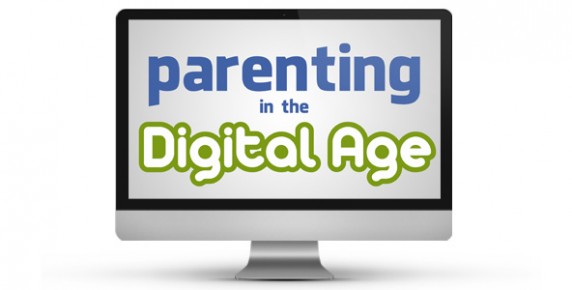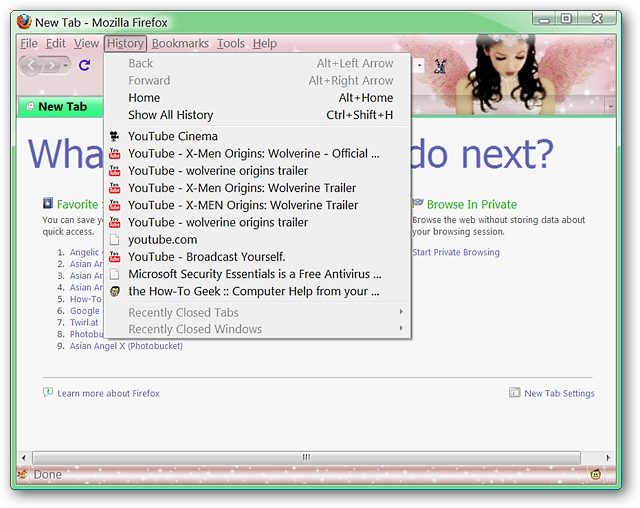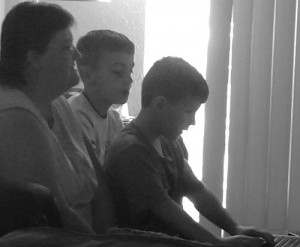Here you go: Our weekly roundup of the top safety articles of the week courtesy of SafeSoundFamily. Tim is featured twice this week!
Top 25 Family Safety Articles of the Week
Tim was once again featured on SafeSoundFamily's "Top 25 Safety Articles of the Week." Check it out for some of the best articles that were published this week!
Home Safety
-
Mike, from the NFPA’s Safety Source, reminds us that we should have changed smoke detector batteries when we moved our clocks forward. He also links to a free resource (PDF) on smoke alarm safety at home.
-
Judi, also of Safety Source, has some sound advice on cooking safety: never leave your stovetop unattended. This is an all-too-common (but preventable) cause of house fires.
Family & Child Safety
-
We all know that it’s harder to be nasty to another person’s face, but Tim of uKnowKids puts this in context: cyberbullying is faceless, and is therefore easier and more prevalent than traditional schoolyard bullying.
Top 25 Family Safety Articles of the Week
It seems like our friends at SafeSoundFamily do a great job of rounding up the best safety articles of the week, and we especially like the "Online and Data Security" section. Check these articles out that included everything from a seatbelt designed for a pregnant woman to the most prolific Craig's list scams.
Top 25 Family Safety Articles of the Week: Feb 15, 2013
Spotlight: A special thanks to Erin Raub and the SafeSoundFamily team for pulling together a weeks worth of great articles! The Web publishing team at Safe Sound Family consists of highly-skilled writers and editors who are passionate about and experts on family safety issues. Their team is dedicated to providing great advice and useful tips and information on home security and overall family safety topics. This week they included two articles from our parenting blog and we're excited about the posibitily of working with them in the future! Enjoy!
Digital vs. Analog Parenting: Strangely Similar
Right now, we are living in the future, where many of us have social circles and professional interactions without ever leaving the house. The internet has enabled people to become more global and worldly, but there are still some kinks were are working out of this new social structure that we haven't fully been able to figure out.
With the world being at your fingertips and the wealth of knowledge right there whenever you need it, there are so many intellectual advances your child can make that you might never have imagined as a kid. With only a single generation separating the "space age" from the "information age" digital parenting is something we also need to consider. Because with the entire world at a glance, there are a lot of things out there that you, as a parent, have to decide if your child is ready for or not.
A Holiday Story From TrendingMom: The Christmas Jerk
This is an original post from one of our favorite bloggers, Shivani Cotter of TrendingMom.com. You can read this article, and many more, here.
Some people really are just jerks… either that, or they have no concept of reality.
Christmas seems to bring out the best and worst in people. What we tend to forget as we grow older is that it is truly a magical time for the little one’s in this world. I read something disturbing tonight.
Another Good Thing About Parental Monitoring
Most of us think of parental monitoring in terms of protecting your child from bullying and predators, or maybe just protecting them from posting an inappropriate picture on a whim that could haunt them for years. Of course it does all those things, but simply knowing where our kids are online can clue us in on what's going on in their life.
Just by checking the Internet history on my home computer I know what news stories my husband is interested in and what projects my kids are working on in school. Did you know that just looking at the sites your kids have visited in the last few days and weeks can also give you a pretty good picture of what their life looks like right now?
What Kids Think About Sexting
I'm at a little bit of a loss for words when it comes to the teen sexting phenomenon, and the statistics I see don't seem to give me a clear understanding of the issue.
Is sexting a socially accepted activity among kids, or is there a social stigma to it? Do 1 in 5 kids really do it? And is this more of a middle school or a high school issue?
After stumbling across the transcript of a 2009 teen focus group on sexting, I was even more convinced that even among kids there's not really a consensus.
‘Big Brother’? No, It’s Parental Monitoring
 When her children were ready to have laptops of their own, Jill Ross bought software that would keep an eye on where they went online. One day it offered her a real surprise. She discovered that her 16-year-old daughter had set up her own video channel.
When her children were ready to have laptops of their own, Jill Ross bought software that would keep an eye on where they went online. One day it offered her a real surprise. She discovered that her 16-year-old daughter had set up her own video channel.
{Kyle and Colleen Reed, with Darren, 13, and Trevor, 11, in Golden, Colo. Mr. Reed monitors Darren’s texting with an app.}
Every Parent Uses One: Types of Parental Controls
Knowing what parental control options are out there is essential to any parent whose children have reached the age where they can go online by themselves.
Kids can easily stumble across inappropriate content, or they might go looking for trouble online. In either case, some of the following options might be useful components of the parental controls you use to keep your kids safe every day.
-
Site blocking and Content Filtering – blocks inappropriate sites based on algorithms that determine content, can be purchased software or a built-in component of your PC or the search engine you use
-
Keystroke Logging – keeps track of user names and passwords entered online
-
Time Allowance – controls duration and times of day when Internet use is allowed
-
IM,Chat, and Email Logging – keeps records of both sides of virtual conversations your child has
-
Built-in Controls – almost every computer, phone, and gaming console has options for parents to filter, limit, or block certain features of online use
-
Web-based services – monitors your child's online activity, delivers regular reports to you, and usually alerts you immediately if dangerous activity is detected
-
Parental Involvement – knowing where and when your child is online and actively enforcing household rules about Internet use.
10 Things to Teach Your Kids About Internet Safety
Like anything else, you need to teach your kids how to use the Internet if you expect them to use it safely and responsibly. Parental control software can be a good training tool, but eventually they need the skills to do it alone. Have you taught your children these 10 critical things about going online?
-
If you accidentally come across something inappropriate, shut off the computer and tell an adult.
-
Not everything you read online is true. From rumors to homework resources, no one is fact-checking the Internet for accuracy.



.jpg)







